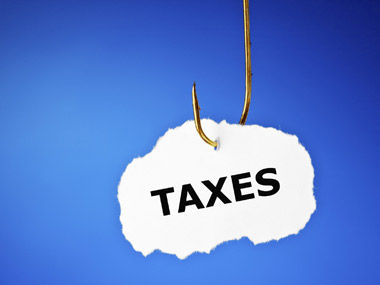With the Constitution 122nd Amendment Bill getting passed, decks have been cleared for seminal changes for the better in our indirect taxes regime.
To be sure, Goods and Services Tax (GST) would be a reality only if the constitution amendment bill is further ratified by at least half of the states i.e. 15 out the 29 but then it does not now appear to be such a problem given the near unanimity with which the bill was passed by the Rajya Sabha, with the AIADMK alone choosing to be a lone ranger by walking out.
Apart from the central law on GST, there would be state laws as well as both have their respective fields carved out. In addition, the GSTN or GST information network has to be rolled out. To the government’s credit, work on the network was started as far back as in 2015 with the private sector IT behemoth, Infosys bagging the contract.
It is estimated that there would be around 7 million manufacturers and traders using the system in addition to the officialdom. The online system has got to be not only robust but also resilient to take on the load and the changes necessitated from experience of working the system.
The devil as they say always lies in the details. A lot hinges on the GSTN in the making. But then India can take heart from its earlier experiences with online initiative be it the railway bookings, income tax payments and returns filing or service tax and excise interface between the government departments and the users or taxpayers as the case may be. But GSTN would be unique in the sense that it would have a much larger number of users. Be that as it may.
Trade is already voicing its muted protest on several issues. One has to register himself with the GST authority in each state in addition with the central authority in what appears to be a continuation of the status quo despite the GST having sway over the entire country with a single rate.
This is because India’s is a federal structure and no state fails to watch over its financial interests assiduously. Single administrative machinery is desirable but not practicable in the very scheme of our constitutional things.
What, however, has sent a fear down the spines of the trade is the proposal to give input tax credit only if the trader ensures that everyone before him in the value addition chain has paid the GST faithfully. This is the much-touted self-policing mechanism, the lynchpin of GST.
Let me explain with a simple example. Suppose A sets the ball rolling by selling a raw material to B for Rs 20,000 and B sells to C for Rs 30,000 i.e. after adding value of Rs 10,000. Let us assume the GST rate is settled at 20%. If C sells to D for Rs 40,000 i.e. after making a value addition of Rs 10,000, his gross tax liability would be Rs 8000 but he is eligible for an input tax rebate of Rs 6,000.
So far so good, but the caveat is he would get this credit only if he makes sure that his predecessors i.e. A and B between them have already paid Rs 6,000. Now for this C will have to look over his shoulder and see what his predecessors have done. The above example was rather simplified if not simplistic.
In practical situation, there may be hundreds of predecessors in the supply chain. It may well neigh be impossible for one to watch over all his predecessors.
One rotten fish can spoil the entire pond goes the cliché. Similarly one black sheep in the supply chain can spoil the party for his successors. But then this sends a strong message – do not deal with unscrupulous elements.
Indeed, this feature of the GST which seemingly appears to be an irritant may well prove to be the game changer insofar as morphing the economy from black to white, as it were, is concerned. It would not only increase our indirect taxes collections but also allow the income tax officers to put their shovel into the hitherto difficult to tax categories’ income.


)



